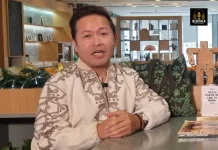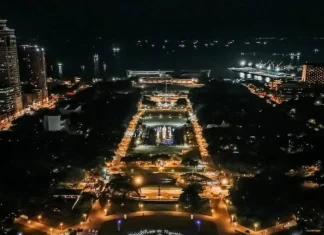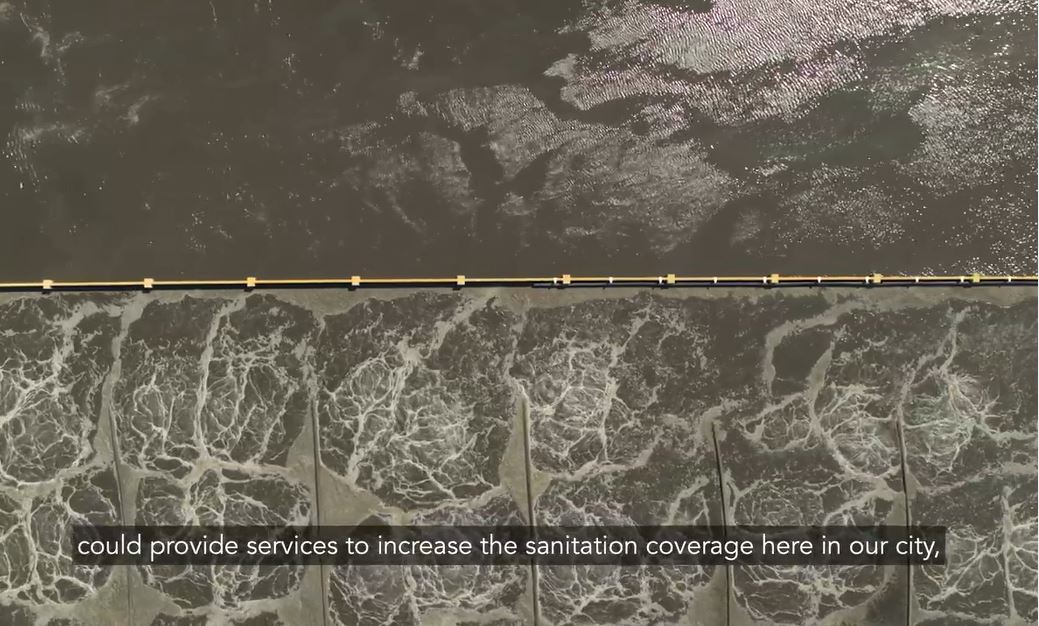
The DLSU science research, led by professor Dr. Michael Angelo “Mike” Promentilla, was announced the winner on January 28, 2020, before the science community and media gathered by the British Embassy in Manila at the Manila Polo Club in Makati City.
DLSU won the prestigious research grant from the Newton Fund worth up to 200 thousand pounds or Php 13 million, part of the one million pounds (£1 million) research fund to be shared between the Country Award winners of Indonesia, China, and the Philippines.
The Newton Prize-winning research titled “Water-Energy-Nutrient Nexus in the Cities of the Future”, a collaborative project between DLSU Manila’s Dr. Promentilla and his UK counterpart co-lead Dr. Devendra Saroj of the University of Surrey, bested three other Filipino science research projects in the first Philippine edition of the awards since the Newton Fund for 17 countries was launched in 2014.
The DLSU Manila science project, that converts wastewater into nutrient-rich fertilizer and pitched as having “the potential to improve local economies by creating jobs, enhancing agricultural practices, increasing food security and improving sanitation and the provision of clean water”, was adjudged by a panel of UK experts and the 2019 Newton Prize countries as “the best example of the combination of quality of research and innovation, outcomes and impacts, regional and/or global relevance, as well as knowledge exchange and partnership”.
The wastewater-to-fertilizer research is also envisioned to provide future cities a way to improve sanitation amidst rapid urbanization in the Philippines.
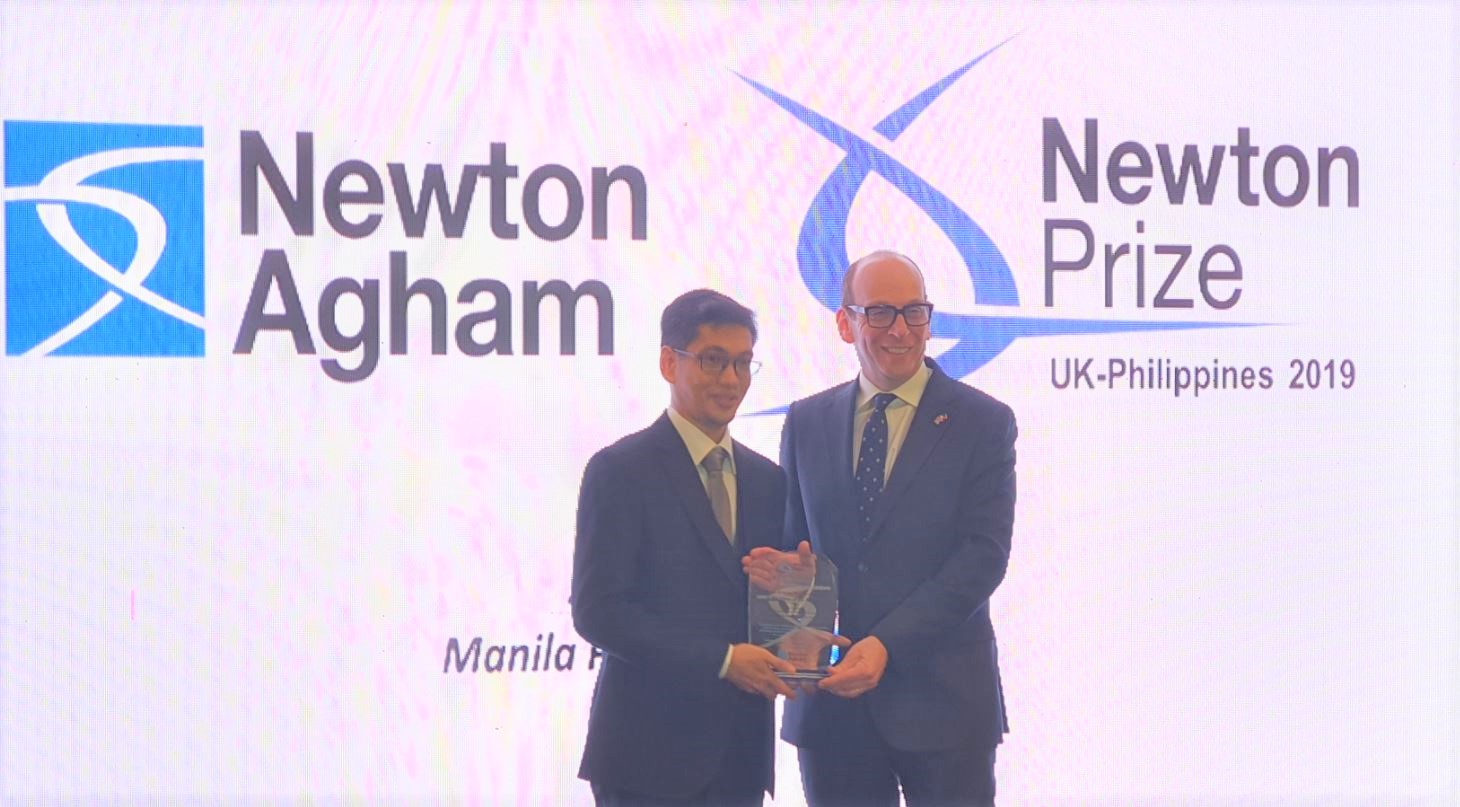
The Philippines’ Newton Prize winner studied data provided by Maynilad Water Services n Metro Manila and found that the recovered phosphate can be used as fertilizer in agriculture. Agri-businesses were noted to have interest in the results given the global demand for phosphorous fertilizer.
The project is also seen as providing a foundation for further research to address the problem of water pollution and poor sanitation and encourage other cities in the Philippines to invest in sanitation.
The wastewater-to-fertilizer research of the Philippine team of Dr. Promentilla, Professor Aileen Huelgas-Orbecido, Dr. Arnel Beltran, Engr. Carla Mae Pausta, and Prof. Luis Razon, was initially funded by the Department of Science and Technology (DOST) – Philippines Philippine Council for Industry, Energy, and Emerging Technology (PCIEERD) and the UKRI Engineering and Physical Sciences Research Council.
British Ambassador to the Philippines, Daniel Pruce, shared to Good News Pilipinas his praises for the Newton Prize Awardee and the finalists from the Philippines, saying, “the amazing project which takes sewage and turns it into fertilizer is a winner which is not only an example of the quality of research and scientific minds here in the Philippines but is also a project that has immediate and direct applications to many communities and many countries around the world.”
DR. MIKE PROMENTILLA’S SCIENCE
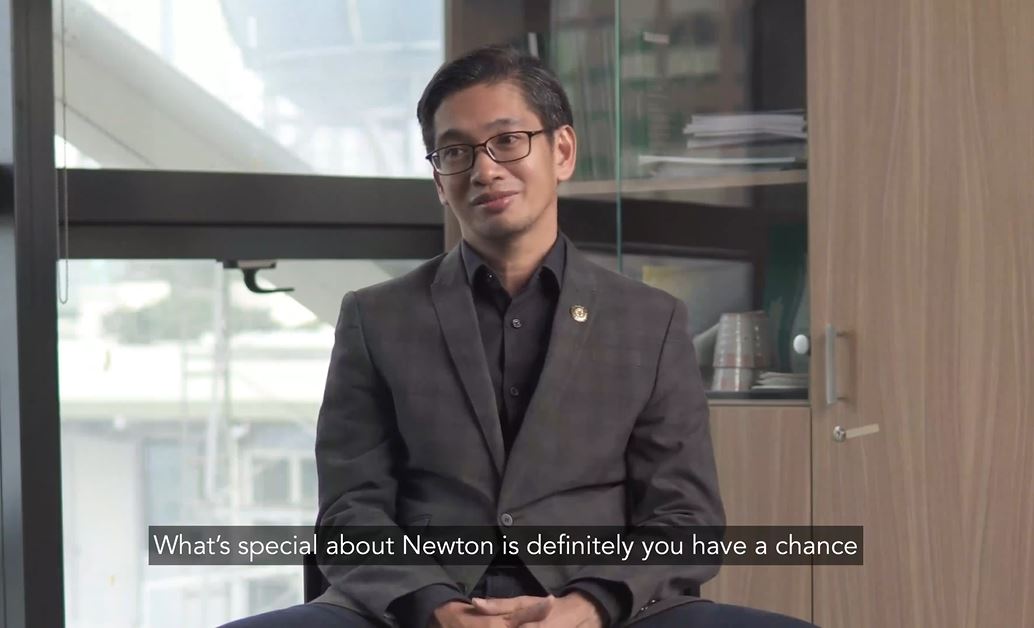
Dr. Mike Promentilla, DLSU-Manila’s head of Waste and Resource Management at the Center for Engineering and Sustainable Development Research, revealed in a Newton Prize presentation prior to winning the award that he has been fascinated with Chemistry and Math since a high school experiment that turned banana into wine. His Chemical Engineering undergraduate thesis at the University of the Philippines Los Baños in the 1990s was about turning wastes to energy resource, a precursor of his Newton Prize-winning research.
The Philippine National Academy of Science and Technology (NAST) Outstanding Young Scientist Awardee (2013) shared how he asked the questions of why it works and how to improve the technology, and mulled about the idea of “Pera sa basura (money from garbage)”.
His says studying for his masters at UP Diliman turned up his “passion to make a difference and a way of thinking to find solutions to problems we have now.”
NEXT STEP WITH NEWTON
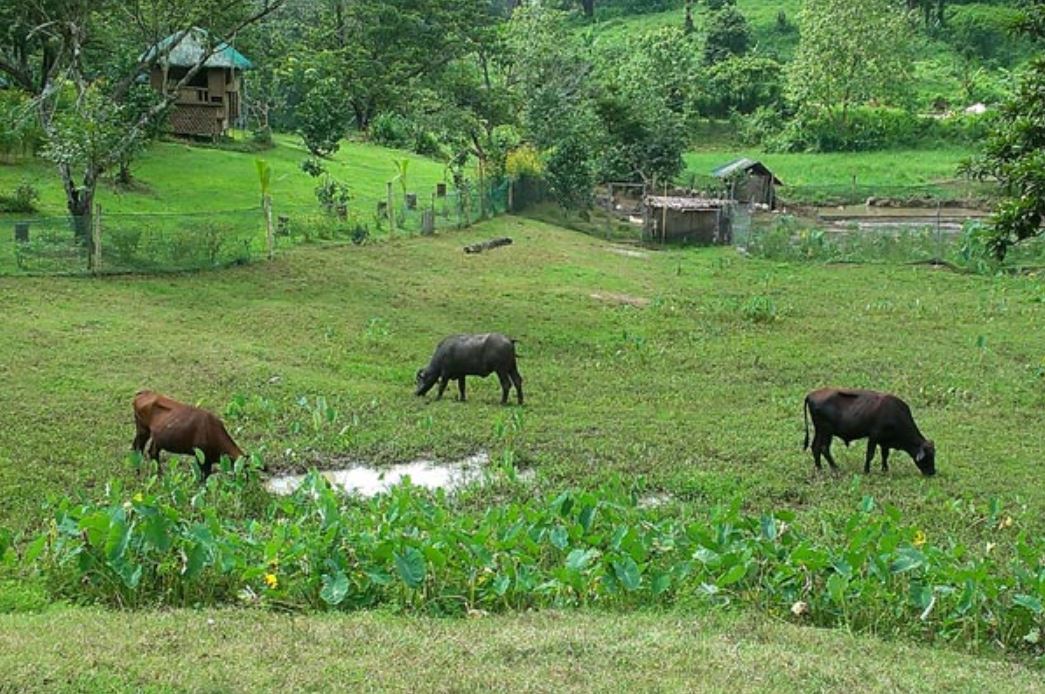
GoodNewsPilipinas.com was present at the awarding and interviewed Dr. Mike Promentilla about plans for developing the research using the Newton Prize.
Dr. Promentilla revealed that their next step after winning the multi-million research grant, which they will share with their UK-based counterpart, would be to engage a local farm in applying the new technology.
The DLSU Manila professor confirmed that they will collaborate with the De La Salle Araneta University (DLAU) Salikneta (Saliksik sa Araneta) Farm AgriVet Sciences Institute (AGSI) in San Jose Del Monte City, Bulacan for the processing of their septic tank sewage into what Dr. Promentilla says would be the “next generation fertillizer”. The end product would be used by the farm school itself for its crops and offered to farmers in the area, including the families of the Salikneta Farm students.
Good News Pilipinas also talked to Dr. Aido Sepeda, Vice Chancellor for Academics and Research at De La Salle Araneta University, about the value of this collaboration with Salikneta Farm AGSI.
Dr. Sepeda said he welcomes the initiative of Dr. Promentilla and his team to collaborate towards furthering the vision of Salikneta, a laboratory school for Agriculture, to be the hub of smart agriculture in Bulacan.
“Any research project that would further the development of agriculture especially in the era of the Industrial Revolution 4.0 where technology reigns would be a great contribution in ensuring that our students are introduced to new ways of doing agriculture,” said the DLAU Academics head.
“We are collaborating in a project that will benefit this and the next generation of agriculture students. It will also make the farm more sustainable. We call it integrated farming with zero waste technology. We have prototypes of such initiatives, we just dont have the fund to initiate it so this initiative is really a welcome development towards that end,” adds the DLAU VCAR who also says collaboration with fellow Lasallians is “all the more inspiring as this will enhance our collective mission of a Christian and human education, together and by association.”
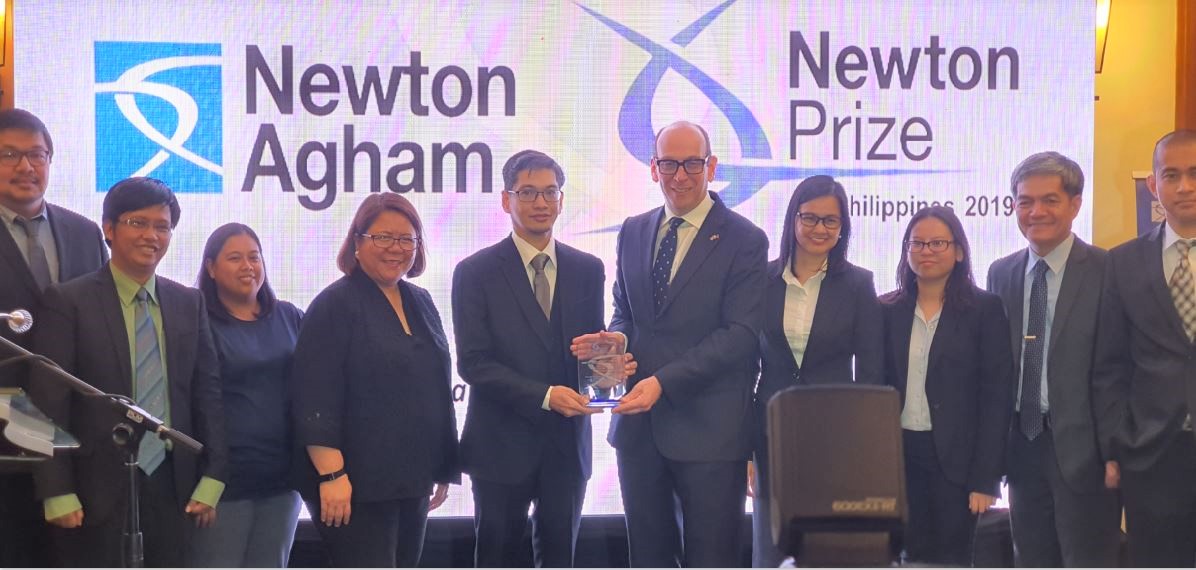
Maria Eda Apple Suplido, Agrivet Sciences Institute OIC Executive Director, says the collaboration with Dr. Mike Promentilla can help reduce the cost of waste disposal while gaining a product in the process. She cites how she sees the output in 5 ways:
- We harness back the phosphorus from the farm waste which reduce our demand for external phosphorus sources.
- We can further maximize farm resources to optimize farm production.
- Our Agriculture Students can actually see and learn how a farm can truly be sustainable if existing farm resources may it be water, soil, and even waste.
- Product can be sold commercially in the market and can be used as an additional income stream.
- Our neighboring community can benefit from the product of the project since it is an agriculture community plus it can address/assist on waste disposal. Improper sewage disposal can lead to pollution and even spread of disease.
PHILIPPINES-UK COLLABORATION
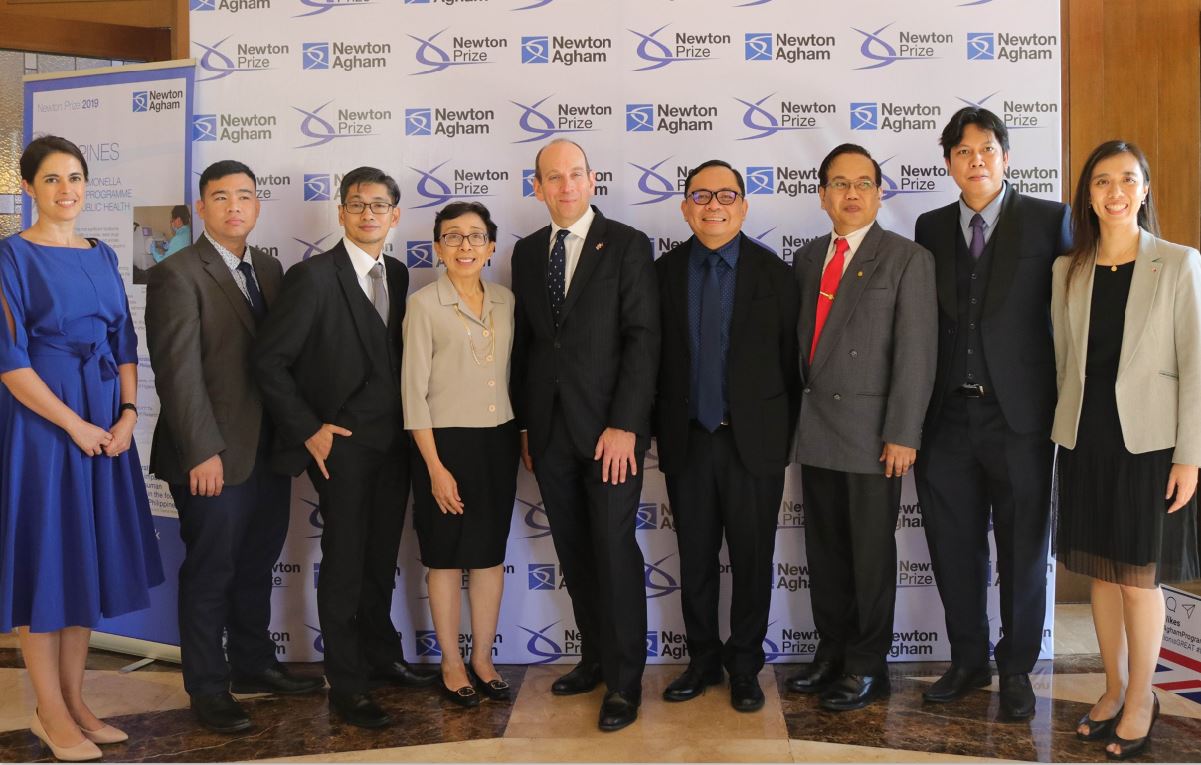
Dr. Mike Promentilla and the other Newton Prize finalists in the Philippines were presented by the British Embassy’s First Secretary Dr. Rebecca Shah to a media preview before the winner was announced. The British Embassy official said the Newton Prize Philippines is “a celebration of the country’s finest scientists and research work that inspire progress and change towards issues that matter to the Philippines.”
The Newton Prize Finalist science researches presented included:
- the genomics-based tracer study of Salmonella transmission from the University of the Philippines Diliman Natural Sciences Research Institute and the London School of Hygiene and Tropical Medicine
- the low-cost portable rapid detection device for infections from the multi-university project led by UP Los Banos and Brunei University London
- the enhanced surveillance of malaria project from the Philippines’ Research Institute for Tropical Medicine and the London School of Hygiene and Tropical Medicine
- the Newton Prize-winning wastewater-to-energy-nutrient project of Dr. Promentilla
The Newton Prize finalists were presented together with the Philippines’ Nominee for the Newton Prize Chair’s Award Jopeth Ramis of the Technological Institute of the Philippies and University of Nottingham who presented a research in tissue engineering that promises to cure asthma. Ramis will compete for the 500k pounds prize in London on February 12.
Dr. Mike Promentilla and his University of Surrey counterpart will join Ramis in the London presentation of the Newton Prize Country Awards.
Newton Prize Philippines was presented in collaboration with the Newton Agham Programme which funds researches into science and innovation solutions in partnership with the country’s DOST, Department of Agriculture, and the Commission on Higher Education.
University research in the Philippines has brought forth many successes, among them, student researches from the University of the Philippines, De La Salle University, and the Mapua University that have been turned into startup companies with the help of DOST programs, the Ateneo de Manila University research that beat 6,000 competitors in New York, and the eight universities that ranked in the 2020 Google Scholar Profiles for Research Citations.
LEARN MORE about the 2020 Newton Prize Country Award for the Philippines and SEND CONGRATULATIONS in the comments below to Dr. Mike Promentilla and the Filipino scientists adjudged to have the best innovative and impactful solutions to Philippine issues!
Want to know how to be a Proud Pinoy? Like, Follow, Subscribe to GoodNewsPilipinas.com and our socials Facebook, Twitter, Instagram, Good News Pilipinas! TV on YouTube, for new story notifications and e-mail newsletters for updates on more Filipino Pride stories.


